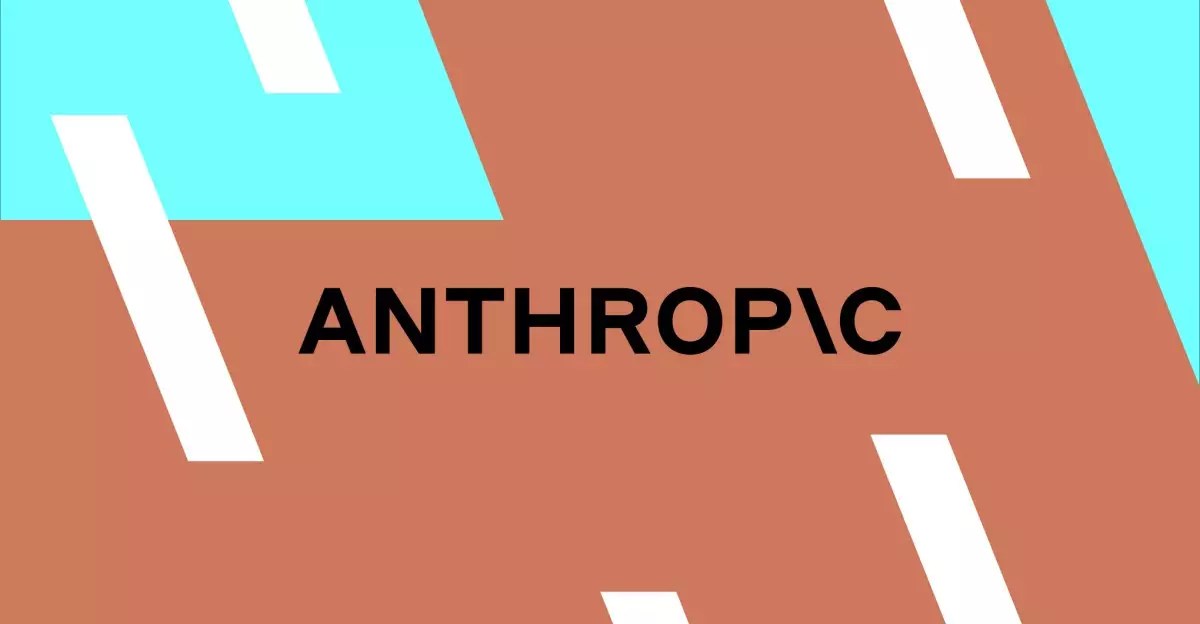In the rapidly evolving landscape of artificial intelligence, Anthropic is poised to capture attention with the release of Claude 3.7 Sonnet. This latest iteration not only represents a significant improvement over its predecessors but also introduces a pioneering coding companion known as Claude Code. As AI continues to infiltrate various sectors, Anthropic’s approach to streamline machine reasoning and code collaboration warrants a closer examination.
Claude 3.7 Sonnet marks Anthropic’s ambitious foray into creating a “hybrid reasoning model.” It is engineered to tackle more intricate challenges, showcasing a marked performance boost particularly in the realms of math and coding. This model is positioned against a backdrop of competitive advancements in AI, such as those seen in OpenAI’s offerings. With this enhancement, Anthropic aims to shatter the conventional barriers surrounding problem-solving capabilities, providing users with a tool that can efficiently handle both straightforward inquiries and complex tasks that require critical thinking and planning.
What sets Claude Code apart is its characterization as an “active collaborator.” Unlike traditional coding assistants, Claude Code is designed to engage deeply with the programming process. Its ability to read code, edit files, initiate tests, and seamlessly integrate with GitHub sets a new standard for AI-assisted coding. This multifunctionality suggests a shift away from passive tools to those that actively participate in coding dialogues, potentially transforming the landscape for software development.
By promoting Claude Code as an “agentic” coding tool, Anthropic opens up possibilities for a collaborative AI that transcends the classic command-based interactions that have defined coding assistants in the past. This approach invites a range of use cases, including the development of complex applications and enhancements of existing software systems.
Claude 3.7 Sonnet is accessible to developers via the Claude app and other platforms such as Amazon Bedrock and Google Cloud’s Vertex AI. Interestingly, the cost of utilizing this advanced model remains consistent with that of the previous version, making it a financially viable option for businesses and individual developers alike. By maintaining this pricing structure, Anthropic aims to ensure that innovations in AI tools do not become prohibitively expensive, thereby democratizing access to cutting-edge technology.
Moreover, Anthropic’s focus on simplicity in user experience is commendable. By embedding reasoning capabilities directly within the model rather than as a separate entity, they lessen the cognitive load on users, allowing for swift and efficient interactions. This streamlined model is essential for users who require quick responses in high-pressure environments.
Regulation of user experience extends beyond cost and access; it encompasses the ability for developers to influence response times and functionality. Anthropic has integrated a “scratchpad” feature into Claude 3.7 Sonnet, giving developers the autonomy to dictate how the model “thinks.” This degree of customization is a notable advancement, allowing for specific guidelines that optimize performance, particularly in environments where time sensitivity is paramount.
Furthermore, the practical applications evidenced by Anthropic employees illustrate Claude’s versatility. From designing web interfaces to coding interactive games, the potential use cases are vast. This adaptability signifies that Claude can operate across various domains, reinforcing its utility as a comprehensive tool for developers.
The Future of AI Coding Companions
As AI technology progresses at an unprecedented pace, the release of Claude 3.7 Sonnet and Claude Code indicates a broader trend in the industry. The emphasis on integrating reasoning capabilities into single models suggests that we might be moving toward a future where multifunctional AI platforms become the norm. With competitors like OpenAI advancing their own technologies, the landscape is teeming with opportunities that could revolutionize not only coding but also how we conceptualize collaboration between humans and machines.
Anthropic’s Claude 3.7 Sonnet and Claude Code represent a meaningful evolution in the realm of artificial intelligence coding assistants. By embracing the notion of collaboration and integrating reasoning as a core feature, Anthropic is perhaps setting the stage for a new wave of innovation that appeals not only to tech-savvy developers but also to organizations poised to leverage AI for more complex problem-solving tasks. The implications are far-reaching, suggesting that the nature of coding—and the role of AI within it—could change dramatically in the near future.


Leave a Reply